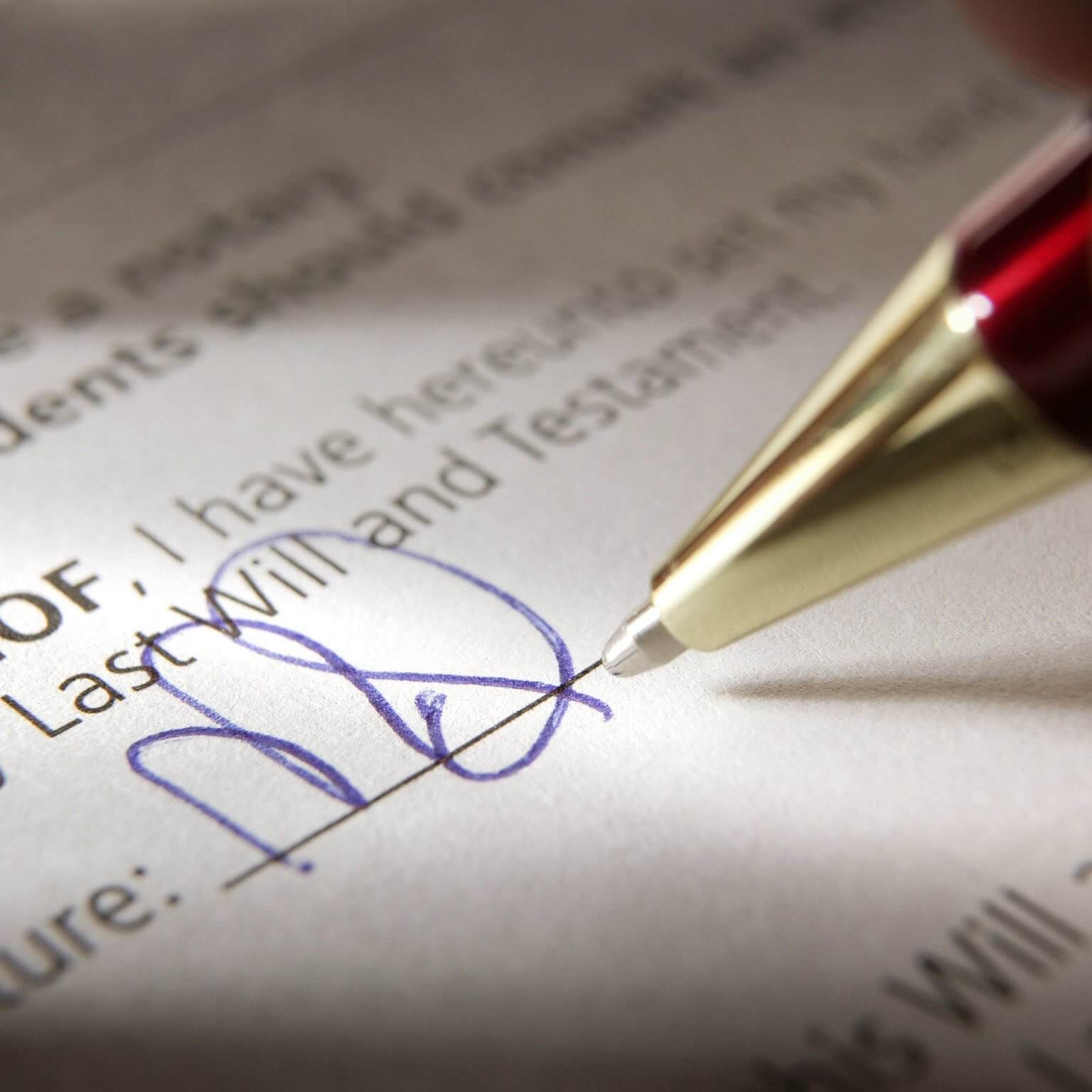The coronavirus pandemic getting you thinking about preparing a Will? You may be worried about how your exposure to the disease or preexisting health conditions may make you more susceptible to COVID-19. The need for an estate plan is constant, but now more than ever, we seek the peace of mind that having our affairs in order can bring.
What is a Last Will and Testament? A Last Will and Testament is a legal document that communicates your final wishes pertaining to your assets – for example, what to do with your personal possessions, whether distributing to an individual, a group, or donating them to a charity(ies), and who is responsible for making the distributions.
How a Last Will and Testament Works. Typically, you write a Will, conforming to certain legal formalities, while you are alive. Upon your passing, if you owned assets solely in your name (without a beneficiary designation, joint owner or a trust), that asset will need to pass through a process called “probate” before being distributed.
What is a Probate? Probate is the name of the process of transferring the property of a deceased person to that person’s heirs or beneficiaries. The Massachusetts Probate and Family Court, known as the probate court, oversees the process of transferring the property of the deceased person. There is a probate court in each Massachusetts county. If the person dies without a Will this is known as an intestate probate. The person submitting such a filing as called a Personal Representative.
Who is a Personal Representative (formerly known as Executor/Executrix)? A PR is a fiduciary who has assumed a series of important responsibilities and duties through the probate process. A PR has a duty of loyalty, impartiality, to preserve and account for estate assets. Selecting the right person to serve as PR upon your passing is critical and should not be taken lightly.
When is a Probate Needed? Generally, in Massachusetts, anytime the decedent individually owns any real property or personal property valued at more than $25,000 a full probate is needed. If the decedent owns less than $25,000 in personal property, one car, and no real estate, a simplified process known as a “voluntary administration” can be done instead of a full probate.
What Happens if You Die Without a Will? If you die intestate—that is, without a Will—the state oversees the distribution of your assets, which it will typically distribute according to a set formula. Typically, property goes to a surviving spouse first, then to any children, then to extended family and descendants, following common law. If no family can be found, property typically reverts to the state.
This formula can have unexpected results. In Massachusetts, if you are married and you die without a Will, what your spouse gets depends on whether or not you have living parents or descendants. If you don’t, then your spouse inherits all of your intestate property. If you do, they and your spouse will share your intestate property in varying amounts based on the formula. If you die without a Will in Massachusetts, your children will receive an “intestate share” of your property. The size of each child’s share depends on how many children you have, whether or not you are married, whether your children are also the children of your spouse, and whether your spouse has any children from a previous relationship. Further complications may ensue if your children are minors, as the court will appoint a representative to look after their interests.
A Properly Drafted Will Means Peace of Mind. While obtaining professional advice when executing a Will is not a legal necessity, you should be aware that a Will must meet certain requirements as provided by state law in order to be valid.
The satisfaction in knowing that your estate plan will be distributed the way you intended. By executing a valid Last Will and Testament, you can save your family a great deal of stress, burden, and cost at an already difficult time.
©Surprenant & Beneski, P.C. 35 Arnold Street, New Bedford, MA 02740, 336 South Street, Hyannis MA 02601 and 45 Bristol Drive, Easton MA 02375. This article is for illustration purposes only. This handout does not constitute legal advice. There is no attorney/client relationship created with Surprenant & Beneski, P.C. by this article. DO NOT make decisions based upon information in this handout. Every family is unique and legal advice can only be given after an individual consultation with an elder law attorney. Any decisions made without proper legal advice may cause significant legal and financial problems.
